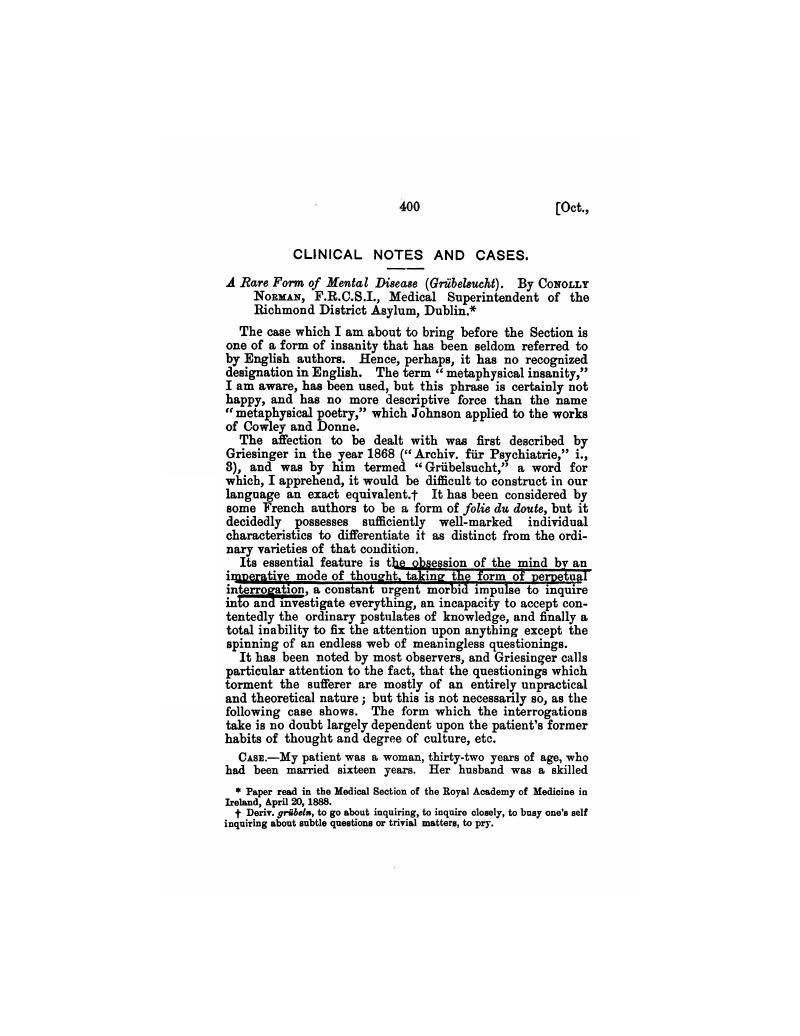No CrossRef data available.
Published online by Cambridge University Press: 19 February 2018

† Deriv. grübeln, to go about inquiring, to inquire closely, to busy one's self inquiring about subtle questions or trivial matters, to pry.Google Scholar
* In the discussion that arose on this case, the Chairman of the Section, Dr. James Little, President of the King and Queen's College of Physicians, cited as bearing on the subject two cases, which he thus described:—”Some years ago a business gentleman consulted him whose duty it was in his department to take the invoices and mark on the pieces of cloth the proportionate price to allow the regulation profit. He had been many years at this, and was so expert that no matter what the fractions to which the invoice price descended, he might go on without making a mistake; yet he got into a state of doubt that, even if the invoice price were only a shilling, he could not convince himself that he was right,' though the man inside' told him he was. Another case came under his observation in which a pharmaceutical chemist, failing to convince himself of the accuracy of weight or measure, could not carry on business, and life became almost intolerable.” This interesting condition is not at all identical with the state to which Griesinger has called attention, though both present a certain similarity through the irritable weakness that underlies each. The cases described by Dr. Little bear a very close analogy to various forms of occupation neuroses, such as Scrivener's palsy, etc. Google Scholar
eLetters
No eLetters have been published for this article.